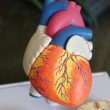Have you ever found yourself reaching for a bag of chips or pint of ice cream when feeling stressed or sad? Emotional eating is a common response to our feelings, but can quickly spiral into food addiction. The cycle between emotional eating and food addiction can be difficult to break, leading to negative impacts on both physical and mental health. In this blog post, we dive deeper into the link between emotional eating and food addiction, as well as provide tips on how to break the cycle for good. So grab a healthy snack and let’s get started!
Emotional Eating
Emotional eating is when you turn to food for comfort, stress relief, or as a way to cope with negative emotions. It’s a common response to feeling overwhelmed or stressed out and can become habitual if not addressed. Emotional eaters often crave high-calorie foods like ice cream, pizza, or chocolate because they provide short-term comfort and pleasure.
The problem with emotional eating is that it doesn’t address the underlying issue causing the negative emotions. Instead of dealing with problems directly, we turn to food as a temporary fix which can lead to overeating and weight gain. Ongoing emotional eating can also cause feelings of guilt and shame further perpetuating the cycle.
It’s important to note that everyone emotionally eats at some point in their lives; it becomes an issue when it becomes the only coping mechanism used regularly. By recognizing triggers that lead to emotional eating such as boredom, anxiety or loneliness one can start addressing these issues directly rather than turning immediately towards food for solace.
In summary, emotional eating may seem harmless but without intervention can easily develop into more serious health concerns such as obesity and depression by sabotaging our mental wellness through guilt cycles caused by unhealthy dietary habits induced by this behavior pattern.
Food Addiction
Food addiction is a complex condition that affects many individuals worldwide. It is characterized by an intense craving for certain foods, even when not physically hungry. People with food addiction often experience feelings of guilt, shame and loss of control over their eating habits.
Research shows that like other addictions, food addiction triggers the release of dopamine in the brain which creates a sense of pleasure and reward. This sensation can be so powerful that it becomes difficult to resist the urge to indulge in certain types of foods.
The cycle of food addiction can also lead to physical health problems such as obesity, heart disease and diabetes. In addition, food addiction may cause psychological issues such as anxiety and depression.
It’s important to note that while some people may have a genetic predisposition towards developing food addiction, environmental factors such as stress or trauma can also contribute to its development.
If you suspect you or someone you know may have developed a problem with compulsive eating behaviors, seeking help from medical professionals or support groups can aid in breaking this cycle.
The Link Between Emotional Eating and Food Addiction
Emotional eating and food addiction are two sides of the same coin. They both involve using food to cope with emotions, stress, or other life events. Emotional eaters turn to food as a way of soothing themselves when they feel overwhelmed by negative feelings such as sadness, anxiety or boredom.
Food addicts have a compulsive need for certain types of foods that trigger pleasure centers in the brain. These triggers can be emotional or physical but ultimately lead to a cycle where the addict must consume more and more quantities of their preferred foods to achieve the desired effect.
The link between emotional eating and food addiction is complex and often hard to disentangle. Both conditions share common characteristics such as an inability to regulate eating behaviors leading to excessive consumption.
In fact, research suggests that there is overlap between these two disorders and that individuals who struggle with one may also experience symptoms of the other. This interplay makes it all too easy for someone struggling with emotional eating tendencies to slip into full-blown addiction mode if not addressed early on.
Breaking this cycle requires developing healthier coping mechanisms for dealing with stressors while addressing underlying psychological factors causing them in therapy sessions. A balanced diet rich in nutrients coupled with regular exercise can go a long way towards curbing cravings for unhealthy junk foods associated with addictive behavior patterns seen among those affected by emotional overeating cycles.
Ultimately, it’s important to remember that overcoming any form of addiction takes time patience effort persistence – but recovery is possible!
Breaking the Cycle
Breaking the cycle of emotional eating and food addiction can be a challenging process, but it is possible. The first step is to identify triggers that lead to overeating. These triggers can include stress, boredom or even certain foods.
One method for breaking this cycle is by practicing mindfulness techniques. This includes being present in the moment while eating and paying attention to hunger cues rather than emotions. It may also involve finding alternative ways to cope with emotions such as exercise or meditation.
Another important factor in breaking the cycle is creating a supportive environment. Surrounding oneself with positive influences and seeking help from friends, family or professionals can provide encouragement throughout the journey towards healthier habits.
Developing healthy habits around food choices and portion control can also aid in breaking this cycle. This involves making intentional decisions about what foods are consumed and how much is eaten at each meal.
Breaking the cycle of emotional eating and food addiction requires patience, perseverance, and self-compassion. By utilizing these methods for support, individuals can move towards a healthier relationship with food that prioritizes physical health as well as mental wellbeing.
Conclusion
Emotional eating and food addiction are closely linked and can create a cycle that is difficult to break. It’s crucial to understand the triggers behind emotional eating and address them in healthier ways instead of turning towards food as a coping mechanism. Additionally, recognizing the signs of food addiction and seeking professional help can be essential in breaking the cycle.
Remember that everyone has different experiences with emotional eating and food addiction, so it’s essential to approach these issues without judgment or shame. With patience, self-compassion, and support from loved ones or professionals who specialize in this area, you can work towards creating a healthier relationship with food.
Breaking free from the cycle of emotional eating and food addiction may not happen overnight but know that every small step counts towards healing. Remember to take care of yourself both physically and emotionally by practicing healthy habits like regular exercise, adequate sleep, meditation or mindfulness practices.
We hope this article has provided you some insights into understanding the link between emotional eating and food addiction while offering practical tips for breaking free from their vicious cycle.











